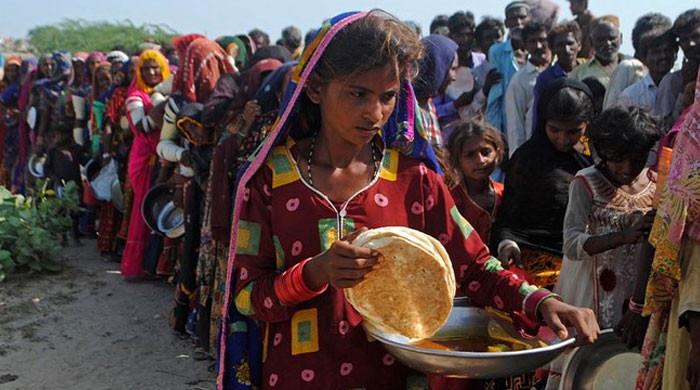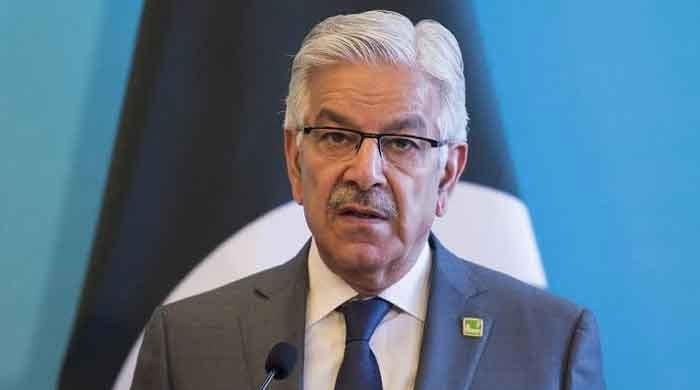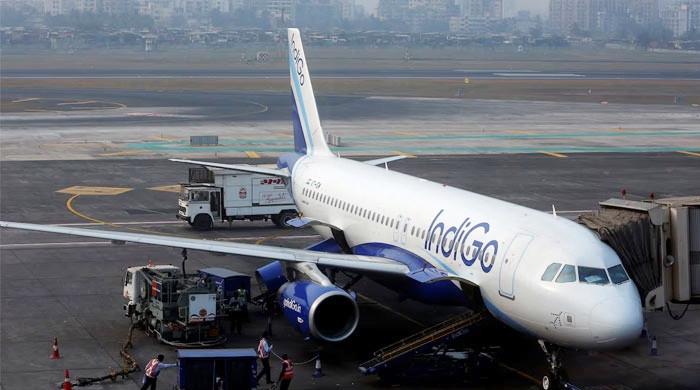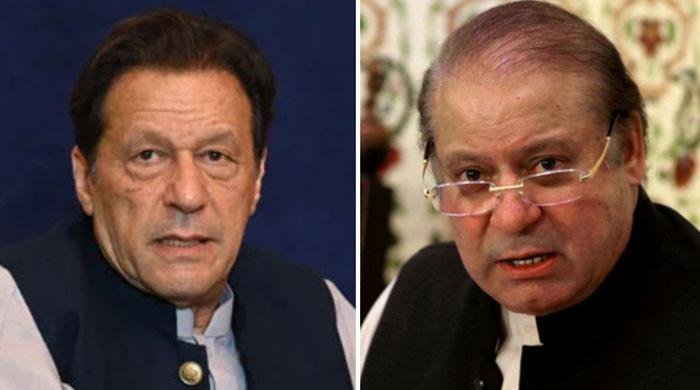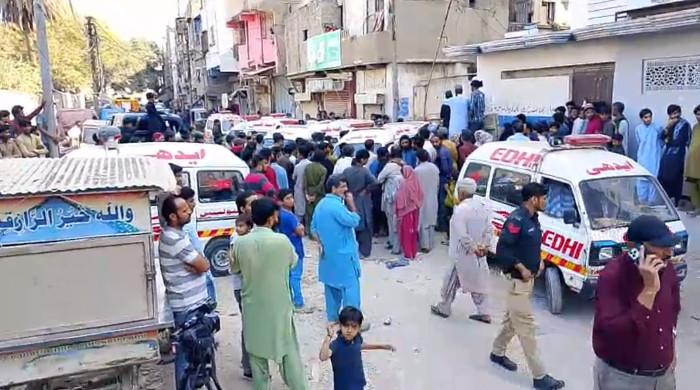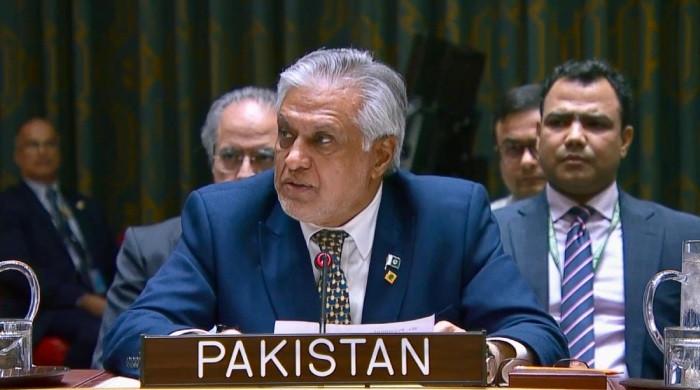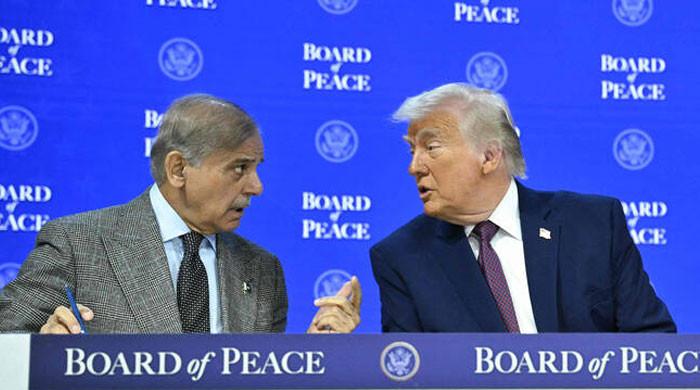Geo Special Report: Are the police to blame for unabated crime in Sindh?
While the politicians claim police makes money from FIRs, the innocent people nominated in them flee out of fear of getting arrested
February 17, 2020
Police officials say the force is kept under pressure from political personalities and tribal heads from Kashmore to Larkana. However, on the other hand, the sardars say that the police are cowards and lack the will to fight crime. They think that an army operation is the only solution to end crimes in interior Sindh.
From the common man to the sardars, everyone blames police for not failing to keep crime under check. They say that the police will not take action against criminals and on the other hand, won't let the common man be.
"No rule of law exists here," says Sardar Mahboob Bijrani. "You can see criminals wandering here but police will not arrest them."
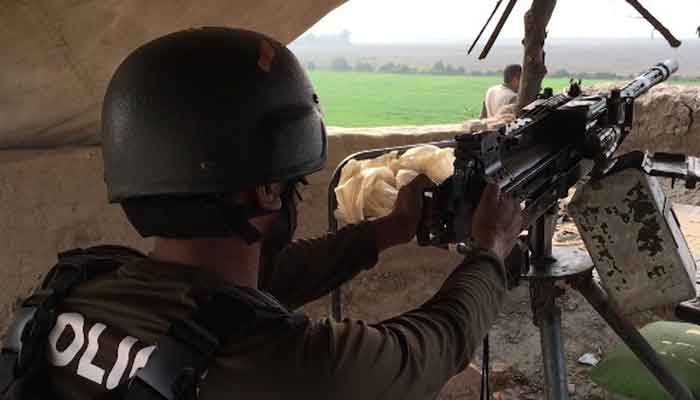
Police officers belonging to the districts most affected by tribal disputes spoke to Geo News off the record and said that besides training and provision of weapons, there were other reasons as to why police cannot clamp down on crime.
According to them, the real reason crime went unpunished in these districts was that the police force was not loyal, could not keep secrets and did not have courage. Police officers hired on recommendations instead of merit are loyal to the sardars and elected representatives, who in turn, are patrons of criminals and killers.
Police officials further revealed that the situation was so bad that police officers didn't even trust their subordinates with their security. As soon as the police decides to conduct an operation, the suspects get wind of it and escape. The common view held by people is the same; the real problem lies with the police being involved in politics.
Sardar Mahboob Bijarani said that the situation of the police department was such that while one person was an officer, his brother was a dacoit. "What can they [police] do? Hirings should be merit-based. Why are quotas given to MPAs and MNAs?" he wondered.
A journalist, Jan Muhammad, said that the politics of these districts depended more on police and the administration. He said that if people belonging to feudal backgrounds were provided the option of whether they would like to be given Rs50 million for development funds or a DSP, two SHOs and a mukhtiarkar, they would rather opt for the latter options.
"Development work will keep on happening," he said.
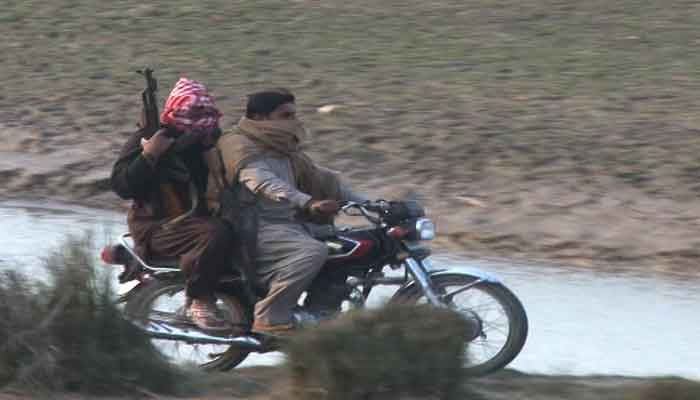
In 2012, 13 police officials who had killed criminals, were martyred in District Shikarpur. Speaking to Geo News, police officers said that whenever a brave police officer came along, they sided with him. However, when he left, they were left at the mercy of criminals and dacoits. Police sources said Abdul Wahid — involved in the murder of DSP Shafiullah and the kidnapping of artist Jigar Jalal — was released on bail one month after his arrest.
Another incident about District Qambar Shahdadkot in 2008 took place in the precincts of Imam Bakhsh Jamali police station. The son of Mohammad Salih Shahalwani, a tribal sardar, was gunned down in a police operation. Shortly after, the ASI involved in the encounter along with five other police officials were murdered in gruesome fashion. Their bodies were burned.
Shahalwani was blamed for the murder of the police officials and a reward of Rs1 million was announced for his arrest. However, he continued to evade arrest until 2019. After he was taken into custody, some Sindh government officials expressed reservations over the arrest, according to police officials.
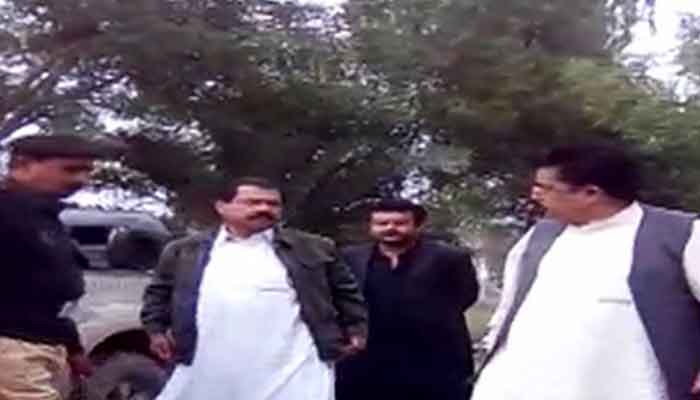
It is said that Shahlwani, who is imprisoned in Sukkur jail, travels in a private car from the prison to the court and without handcuffs.
Bijarani said that the only solution was to bring in police officers from Thatta to take action against criminals. "These police officers [from Thatta] will not be recognised here. They will conduct raids without fear as they do not have any relatives here. Recently, attacks were conducted on police houses and they [officers] had to pay for the damage out of their own pockets," he said.
An FIR is especially important when it comes to tribal disputes. According to police, as many as 40 to 50 people are nominated in a murder FIR when the act is committed by two men. This, they claim, is done at the behest of sardars and politicians.
While politicians claim police makes money from FIRs, the innocent people nominated in them flee out of fear of getting arrested. They become absconders first and end up turning into criminals.
"Ninety-five percent of the dacoits you see were involved in tribal disputes," said Jan Muhammad. "Based on the cases that were registered against them, they were common people who became notorious criminals because of tribal disputes."

Jan said that these people, after becoming criminals, were used in tribal disputes as they formed their groups to attack rivals.
However, some police officers are remembered for their bravery even after their transfer to other areas. One such police officer is Maqsood Bangash, who is remembered even to this day as someone who brought about peace amid tribal disputes.
Tribal leaders say that the government has to take immediate action to bring about an end to disputes. Sardar Taighu Khan Teghani spoke says Pakistan Army should conduct an operation against criminals.
He rejected allegations that Sardars were involved in perpetuating crime in districts under them. Taighu Khan said that the armed forces should carry out an operation so that the allegations against Sardars are proven false.




